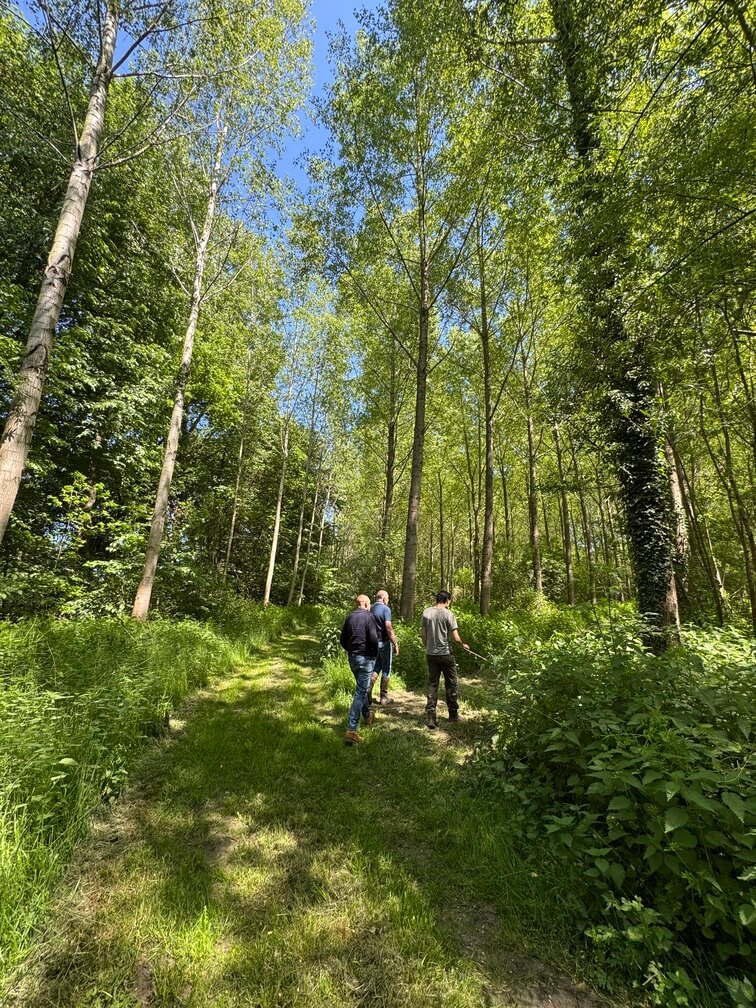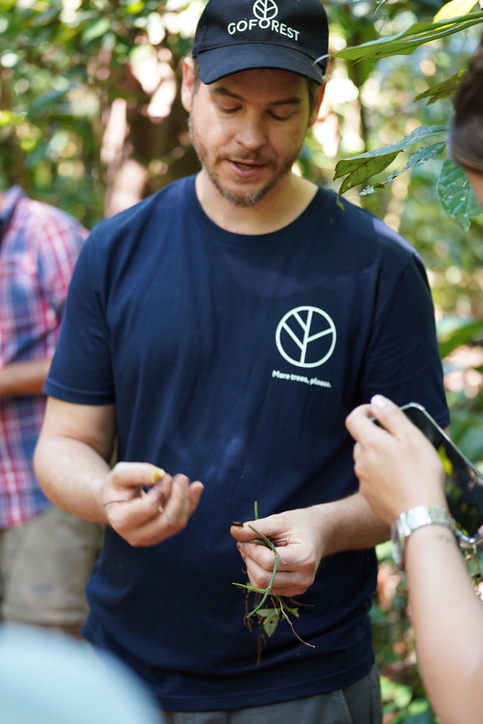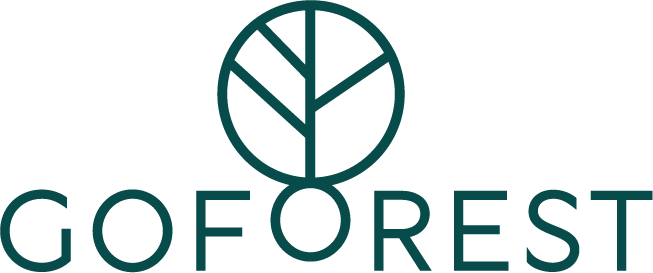In the fast-evolving landscape of sustainability marketing, businesses face a paradox: meeting consumer demands for more sustainable products and services while remaining credible and authentic. Especially when planting trees or restoring corals, you aim to engage your audience, not alienate them.
Even though nature restoration isn’t one of the most polarizing topics, there are still many nuances to take into account when setting out your communication strategy. Therefore, every day we brainstorm with our partners on how best to navigate these challenges. Time and time again, this prompts insightful discussions on effective sustainability communication. Join us and our partner Go Loud as we explore the key do’s and don’ts.

Image 1: Delphine (Go Loud) helping and advising a client during an interview regarding their sustainability initiatives.
The Do's
1. Transparency is key
Probably the most obvious one, be transparent about your sustainability initiatives. Believe it or not, no one expects you to get perfect sustainability scores overnight. It is a journey that you take step by step. Consumers appreciate honesty and openness about your environmental efforts. Share the big wins but also small victories and ongoing challenges; let them peek behind your green curtain, share details openly – a great way for Go Family members to do this is to direct consumers to our impact dashboards for real-time updates.
2. Involve your audience
Engage your audience through research, feedback, education and community-building. Topics like gamification, storytelling, interaction, engagement should not be shied away from. Let your audience help you shape your narrative, based on their input. Make them feel they’re part of the green team!
3. Act locally, connect globally
The market is currently trending to go more local, close to home, where we can go and visit the impact we’re making. It remains important to understand that our local emissions and consumption do have global consequences and global action is needed to combat environmental challenges. By embracing a global and local orientation, you can increase your impact on an environmental, social and carbon level and bring funds to combat climate change where it is highly needed. The same goes for your communication. By communicating about local initiatives while leveraging global networks you can catalyze a ripple effect, inspiring others worldwide to replicate sustainable actions.

Image 2: Ripple effect
4. Make sustainability (language) accessible to all
Offer sustainable alternatives for consumers who may not be ready or lack the tools to fully commit to being more sustainable. Sometimes buying green is connected to a serious investment or commitment, be it stepping away from natural gas as an energy source, flying as a means of transportation or eating meat. However we might agree that total abandonment and fast action is the way to go, incentivizing and celebrating the small steps and commitments can make huge differences. When reduction is not an option, you can try to engage your clients (or employees, stakeholders, …) to give back to their environment in line with their impact.
5. Have a clear "what's in it for me"
At their core people seek a better future for themselves. Therefore, instead of beginning with a grand global vision, it’s crucial to start by highlighting why sustainability matters personally. This means showing consumers how they contribute to a healthier, greener world and why it’s relevant to them, whether it’s for cleaner air, a greener, healthier future, or simply ensuring a better quality of life.

Image 3: The Don’ts
The Don'ts
1. Greenwashing
Don’t lie about, overstate or exaggerate your green initiatives (this is the definition of greenwashing by the way). Greenwashing always leads to a loss of trust and can destroy your brand’s reputation very quickly. Be honest and transparent about your efforts while avoiding making false claims that harm your brand reputation.
2. Neglect consumer preferences
Don’t ignore the preferences of your target audience. Do your research and tailor your sustainability initiatives to align with the values and preferences of your target audience.
3. Lack of long-term vision
Don’t focus solely on short-term gains. Sustainability is a marathon, not a sprint. Consider the long-term impact of your initiatives and plan for sustained positive contributions. Even when you’re only at the beginning of your sustainable journey…be clear about the destination and the path towards it.

Image 4: Sustainability is a journey
4. Ignoring affordability
Don’t assume that sustainability comes with a hefty price tag. Sustainability should be accessible to a broad audience and there are many ways in which you can engage your audience or even help them save money making more sustainable choices.
5. Ignoring semantics and trigger words
Don’t ignore the semantics and trigger words in the world of sustainability communication. Words such as compensation, net-zero, carbon neutral, recyclable or recycled all have different meanings and connotations. To avoid pitfalls, be aware of legal requirements when making certain claims and make sure that you know the exact definition of the terms you’re using in your communication.
Sustainability communication and marketing, when used well, can enhance brand loyalty, trust and drive differentiation and growth. To navigate this topic successfully, make sure you have a strategy in place, follow the do’s and avoid the don’ts.
To check some storylines of our clients, be sure to check out our company cases, such as this case with Energie.be on helping their clients plant trees in line with their emissions from natural gas usage or this case on planting trees to save costs in a hotel with Van Der Valk.
When in doubt, check your ethical compass or reach out to us or our communication partner Go Loud. Together, we can make sure you have an authentic and transparent communication that aligns with your brand’s journey forward.
Mail us – : info@goloud.be
Visit us www.loud-and-clear.be/go-loud
Or book your call https://calendly.com/loud-clear/kennismakingscall-go-loud









